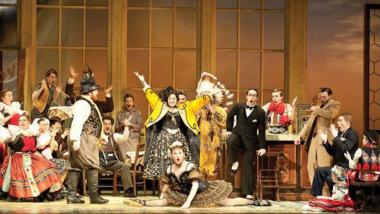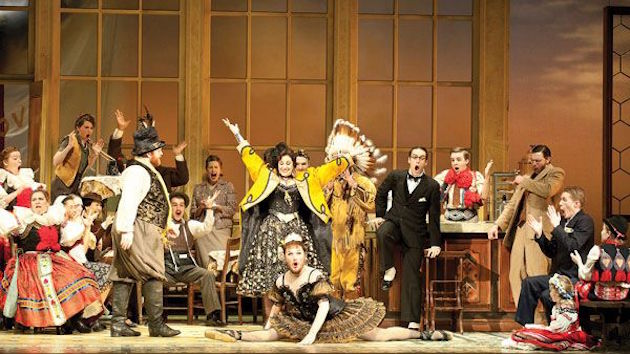
Some years ago, Pocket Opera produced the Polish opera Halka, and now that Pocket is about to reprise the Czech Bartered Bride, on April 8, 15, and 22, I can only repeat my geographical/musical caution: As someone coming from that neck of the woods, I will walk the plank with this about Eastern Europe: Notwithstanding the many splendid composers of the region, it has not done well as a source of great operas.
There are exceptions, of course: all of Moravian Leoš Janáček’s works, and Hungarian Béla Bartók’s Bluebeard’s Castle. Perhaps a notch below those (these matters being strictly subjective) are Czech Antonín Dvořák’s Rusalka and Romanian George Enescu’s Oedipe.
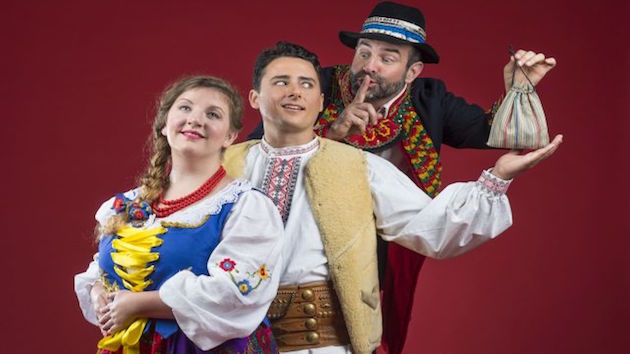
Yet the 19th century, on the whole, was not kind to the native genre over there. Chances are you have never heard, or even heard about, “national operas” from Hungary (for example, Ferenc Erkel’s Bánk bán and Hunyadi László), from Croatia (Ivan Zajc’s Nikola Subic Zrinski and Jakov Gotovac’s Ero s onoga svijeta), from Bulgaria (Emanuil Manolov’s Siromahkinia), and from Serbia (Stanislav Binicki’s Na uranku).
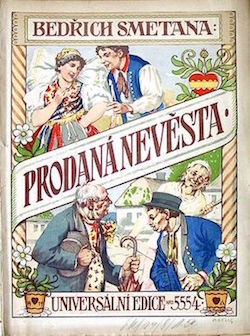
But Pocket’s choices — with company founder Donald Pippin’s wonderful English libretti — are more in the category of “operas rediscovered” — certainly Stanislaw Moniuszko’s Halka, and the subject of today’s sermon, Bedřich Smetana’s The Bartered Bride (Prodaná nevěsta).
Because of its sparkling overture and melodious, folk-music-inspired arias and choral numbers, this 1866 opera has fairly thrived even outside of its natural habitat. In addition to productions all around Europe and some in the U.S., there is even a German film of the opera, made in 1932 by Max Ophüls.
The story is simple: A crowd of villagers is celebrating at the church fair and among them are Marenka (soprano Lindsay Roush for Pocket) and Jeník (tenor Patrick Hagen), lovers who are thwarted by Marenka’s parents, who want her in an arranged marriage.
The marriage broker Kecal (Don Hoffman) represents Vašek (Sam Faustine), simpleton son of a rich family. The lovers outwit the opposition and — spoiler! — there is a happy ending. (But not before a star turn by Esmeralda (Kathryn Benedicto), a Spanish dancer with the traveling circus — yes, it’s a big production.)
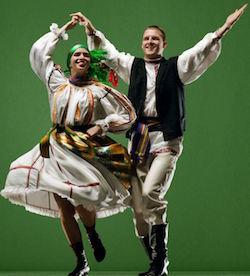
Pippin’s translation includes such gems as the opening chorus:
Come along, the mood is merry;
See the budding peach and cherry.
Love that hovers in the air
Beckons to the young and fair.
Season full of hope and rapture,
Youth and beauty in their glory,
Days of bliss beyond recapture!
Time unfolds a darker story.
Nicolas Aliaga Garcia is stage director, Frank Johnson the music director; sets are by Daniel Yelen, and costumes by Mary Kay Stuvland. The choreographer is Mary Kay Stuvland, whose Lowiczanie Folk Dance Ensemble dresses up the production with a smooth transition from Polish to Czech folk dances.

